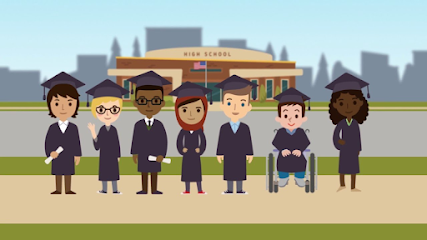"Teach Us All" - Argument
In the film "Teach Us All" a very compelling argument is made regarding the school system in modern day America and how it still often fails its students. The film tells the stories of three different states: New York, Arkansas and California and the systemic struggles of the schools in these states. In all these places schools are incredibly divided by things like race and economic status. Depending on location students are faced with vast differences in quality of education and opportunities given to them. Children in low income places are not given nearly the same care as others in more affluent areas. Furthermore these lower income areas are populated by people of color due to decades of red lining and discriminatory housing practices. Students are left high and dry with high teacher turnover, lack of funding, passionate educators or diverse schools. Terrance Roberts of the Little Rock Nine states, "I was born in 1941 and I saw the craziness around me then, its the same craziness I see around me now, in my world, not too much has changed". His statement rings true for many people of color all across the united states who are left with low quality and underfunded educational institutions. Along with all of these factors, even places with school choice are not truly given a choice as application processes are long and time consuming, tailored much more to middle class students and families. It is explained that "in your face" factors such as direct segregation have been left behind, defacto segregation is still very evident in red lining, allocation of funding ect. As Sybil Mendez states, "We have completely gone around in a circle, we are more segregated than in 1947".
Even with these massive systemic issues there are people working very hard for change. People within some of the schools with the most issues are putting everything they can into making their environment a better place for students, so that everyone gets opportunity and equitable education. Teachers are working on ground zero to make a difference. Additionally in places like New York there are student run boards who are fighting for change in their systems. Now the people in charge of school boards, districts and governmental leaders need to step in and assist these people in making real systemic change.
In class I would like to discuses how we think that people should push in the future to help further these goals and insure all students get the same level of education. I personally have a dream of working in low income schools in Boston, I want to be on the front lines fighting for better for my students, I want to make change. And I would love to discuses with the class about how people think change can be made both in schools and on systemic levels. Because all students deserve an equitable and quality education filled with opportunity and support.



Hi Rayne! Your blog really showed that you understood and cared about what you were learning from the film, amazing job :)
ReplyDeleteRayne I think you described what the film expressed perfectly. I like how you highlighted the positive side of people fighting for the students when typically we as a society perceive the problem from such a negative light it can ignore the hard work being done by so many dedicated professionals. :)
ReplyDelete